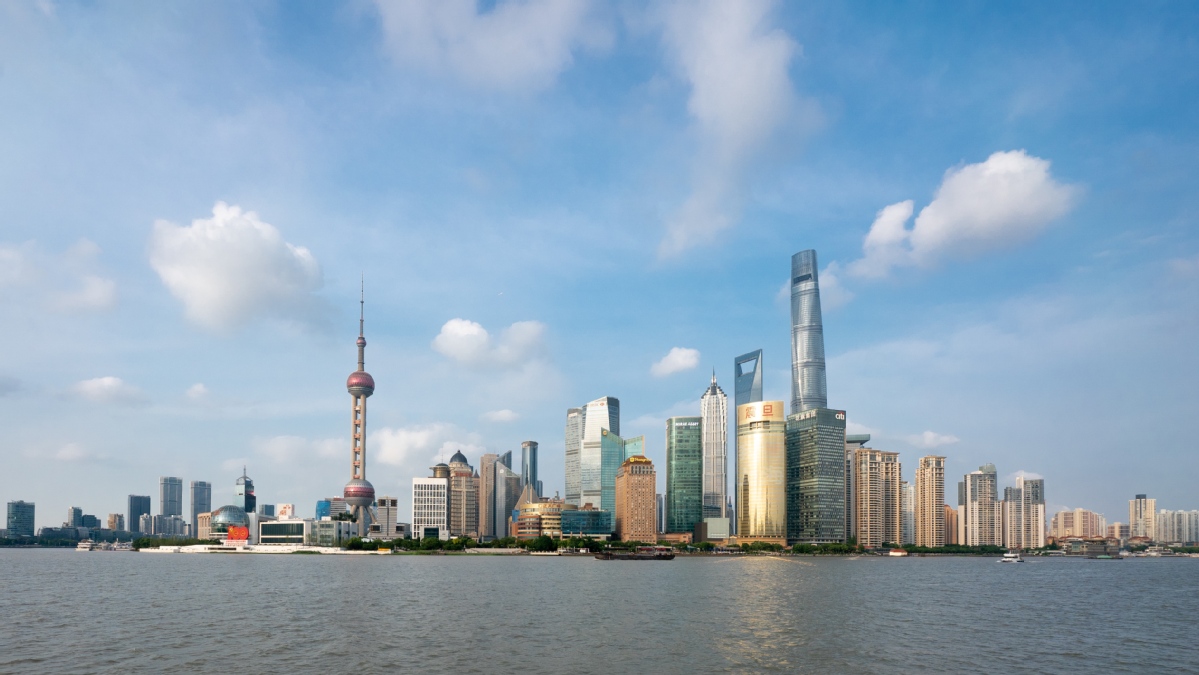Multinationals upbeat on economic prospects


Multinational corporations have voiced optimism about China's economic prospects and pledged efforts to step up investment in the world's second-largest economy, reaffirming that their long-term confidence in the Chinese market remains intact, despite the lackluster global economic recovery.
They also highlighted China's economic resilience and pivotal position in global industrial and supply chains. Experts said as China continues to advance high-standard opening-up, there are more business opportunities for foreign companies, especially in high-end manufacturing, digital transformation and decarbonization.
Their comments came as the National Bureau of Statistics said that China's GDP grew 5.2 percent year-on-year to a new high of 126.06 trillion yuan ($17.52 trillion) last year. China's growth not only outpaces the estimated global growth of 3 percent, but also ranks top among major economies, said the NBS.
"Looking at the numbers, if you look at the size of the Chinese economy, the 'next China' will be China. That is still the largest market in the Asia-Pacific region and even with growth of around 5 percent, the growth of China will then be bigger than the whole market of India and Indonesia added together," said Morten Wierod, president of the electrification business area and a member of the group executive committee of ABB Ltd, a Switzerland-based technology company.
ABB will spend more than $100 million on the research and development of its electrification business in China over the next three years, Wierod added.
"The Chinese market has shown strong vitality and innovative ability, and there is a constant demand from consumers and commercial segments," said Akihiro Fukaishi, chairman and president of electronics maker Epson China. The emergence of new business models, new formats and new technologies has stimulated Epson to optimize its products, solutions and services, he added.
"We are optimistic about the prospects of China's economic growth. Epson will continue to expand in China and provide more green and innovative products and services for Chinese users," said Fukaishi. He emphasized that intelligent and digital transformation has been regarded as one business opportunity that Epson shouldn't neglect in China.
Data from the Ministry of Commerce showed on Friday that the number of newly established foreign-invested enterprises in China reached 53,766 in 2023, up 39.7 percent year-on-year.
Foreign direct investment in the Chinese mainland, in terms of actual use, reached more than 1.13 trillion yuan in 2023, down 8 percent year-on-year, the ministry said. Meanwhile, FDI in the high-tech manufacturing sector rose 6.5 percent during this period.
Wang Yiming, vice-chairman of the China Center for International Economic Exchanges, said the recovery of China's economy is expected to gather pace this year, mainly fueled by new growth drivers led by technological innovation, accelerated digital and intelligent transformation in traditional industries, and the green energy transition.
Alf Barrios, chief commercial officer of global mining company Rio Tinto, said that the scale of the country's investments in renewable energy and electrification is significant and very positive from a climate perspective, while believing China will continue to be a pivotal force for global manufacturing and trade, and an important stabilizer in the global supply chain.
China is the world's largest manufacturing country, with its manufacturing output accounting for nearly 30 percent of the global total, ranking first for 14 consecutive years, according to the Ministry of Industry and Information Technology.
Tetsuro Homma, executive vice-president of Panasonic Holdings Corp, said China has some unparalleled advantages, and it is shifting to an "innovative power" and "engineering power", while maintaining its status as a "big manufacturing country".
China boasts complete industrial and supply chains, a strong ability to accept new technologies, and immense potential for economic growth, which provides broad development opportunities for multinationals, Homma said.
The company is expanding its footprint in China, with a key focus on healthy and smart living space, intelligent manufacturing and new electric vehicle components. “We will continue to increase our investment in China in accordance with our business development and market demands,” he added. Panasonic has invested in 17 new projects in China since the COVID-19 pandemic.
China will continue to play a crucial role in driving global economic growth and safeguarding the security and stability of global industrial and supply chains, said Zhang Jianping, director of the China Center for Regional Economic Cooperation, which is part of the Chinese Academy of International Trade and Economic Cooperation.
He said that China will hold a greater appeal for foreign companies, especially those in the manufacturing and producer services sectors, given the nation's unwavering efforts to expand high-level opening-up by removing all restrictions on foreign investment access in the manufacturing sector and continuously optimizing its business environment.
"A series of supportive policies aimed at drawing more foreign investment, such as a shortened negative list for market entry, pilot free trade zones and implementation of the Foreign Investment Law, have all created favorable conditions for more foreign businesses to invest in the country," he added.
Contact the writers at fanfeifei@chinadaily.com.cn




































